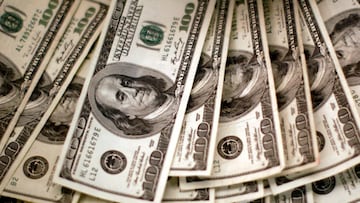Which billionaires got stimulus checks during the pandemic? Who and how much?
While there were plenty of Americans who needed the pandemic support, there are reports of hundreds of the super-rich receiving the payment.


A report from outlet ProPublica, contends that 270 of America's super wealthy received federal stimulus checks in 2020, despite the checks being only for Americans earning under a certain threshold.
These 270 people, including at least 18 billionaires, made around $5.7 billion in income in 2020. What this fiasco shows is the ill-equipped facilities of the IRS, while also representing how billionaires manage to cheat the tax system, using various breaks and strategies to have a negative income on their tax forms, despite owning billions of dollars.
Related news:
- How to check what tax bracket I am in for filing in 2022
- Why is the US Federal Reserve ending covid-19 stimulus checks?
- Is the government mortgage stimulus relief program real?
- How has US economy changed since the first, second and third stimulus check were approved?
Who are some of the names that have received the checks?
Included among the billionaires who received stimulus checks are George Soros, worth $7.5 billion, according to the Bloomberg Billionaires Index, and financier Ira Rennert, worth $3.7 billion, the report noted. Soros' representative said he returned the check, while Rennert didn't respond to questions, ProPublica said.
Timothy Headington is an oil mogul, real estate developer and executive producer of such films as “Argo” and “World War Z,” being worth $1.4 billion, according to Forbes. He had $62 million in income in 2018, but after $342 million in write-offs, his final result was negative $280 million, making his eligible for the payments.
"ProPublica ... identified at least 18 billionaires who received stimulus payments, which were funded by U.S. taxpayers, in the spring of 2020. Hundreds of other ultrawealthy taxpayers also got checks."
— ITEP (@iteptweets) November 3, 2021
This disgrace is why we need real tax reform. https://t.co/Cm8p6hV4Jg
The money can't be requested from the IRS, so this reflects the broken nature of the IRS, as well as the tax system in the US.
How did this happen?
Under the law, the full payments of $1,200 per single taxpayer and $2,400 for married couples were only available to single people earning less than $75,000 or couples with incomes below $150,000. So the only way billionaires could have received this money is by utilizing their arsenal of tax tricks, which means the information given to the IRS is that they have next-to-no income tax.
Business losses can be used against income, as well as waiting for optimal times to cash in on investments. Loans can then be taken against investments to mean tax never has to be paid on them; it is immediately used to pay off loans.
Amazon had sales worth £38,000,000,000 in Europe last year, but paid nothing in corporation tax.
— Zarah Sultana MP (@zarahsultana) May 4, 2021
Tax avoidance robs us of public money. It's time to make them pay. #MakeAmazonPay
Related stories
The Democrats aim to have billionaires firmly under the microscope, making them the target of the tax increases that are to be used to pay for the president's social spending plan. The plan is to increase taxes on earners earning over $400,000 a year, using new methods to prevent tax avoidance. One of the ideas put forward is a tax on investments before they are cashed in.
At present, tax can only be levied on investments once the investment has been sold, but if the rules were to change, then investors would need to declare to the IRS where their money is invested and how much is invested. Taxes would then be levied on most investments while they are still an investment "on paper" rather than when they are sold, which can be deferred until a preferable time. House of Representatives Speaker Nancy Pelosi hopes the plan would raise as much as $250 billion.

